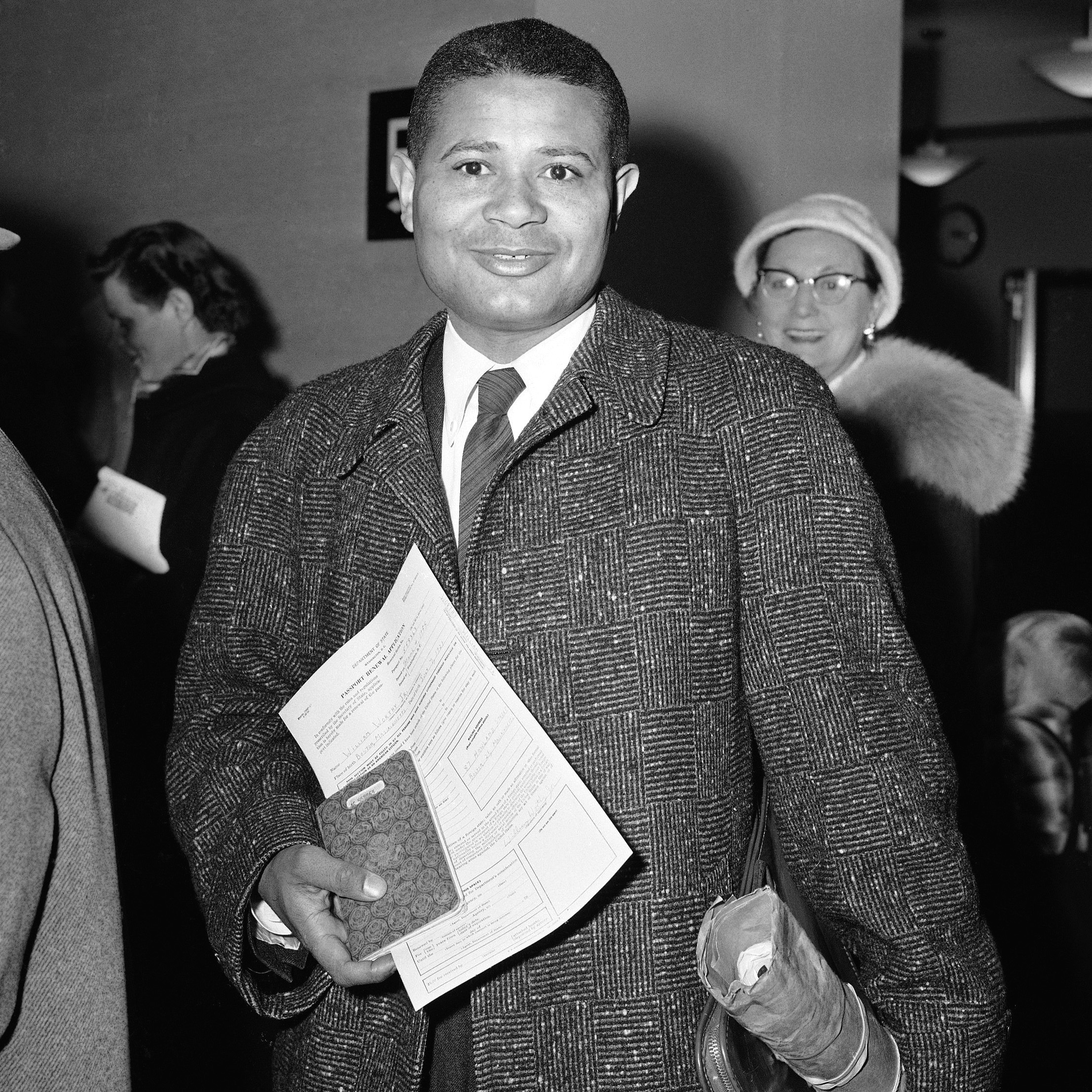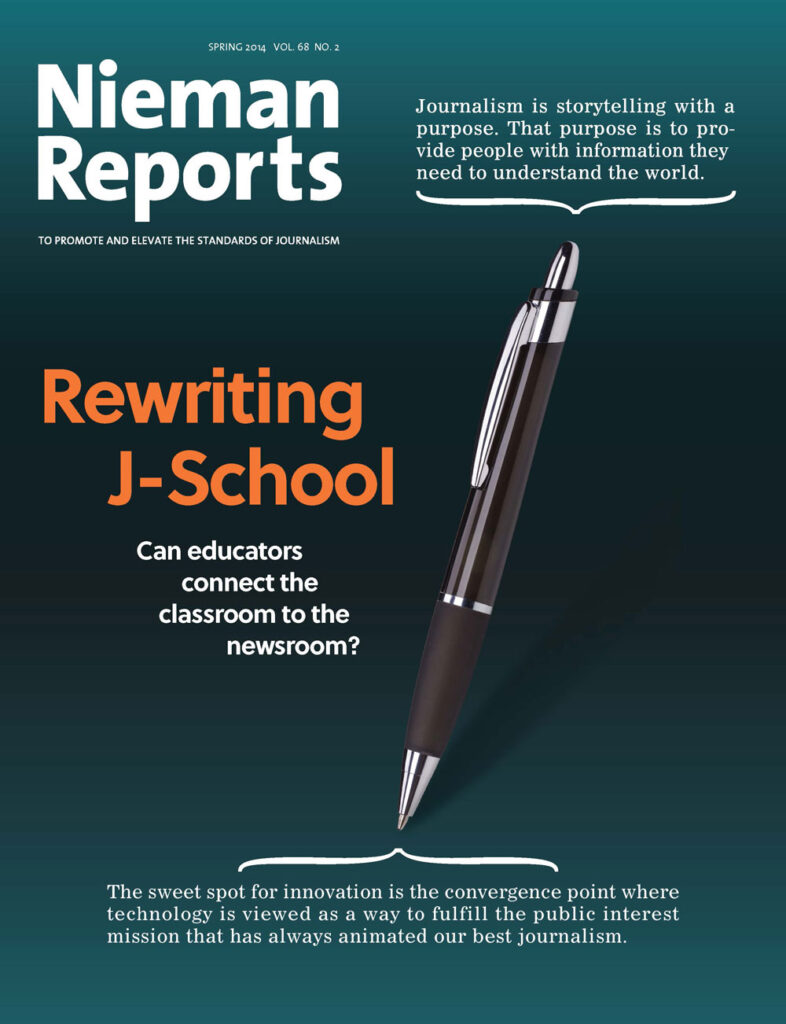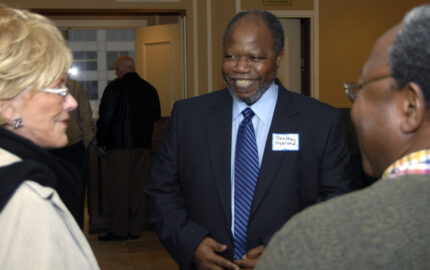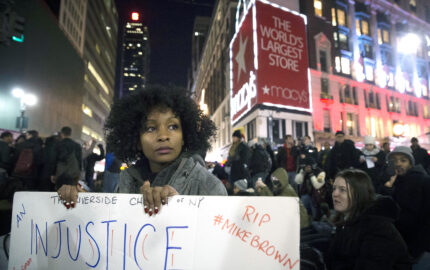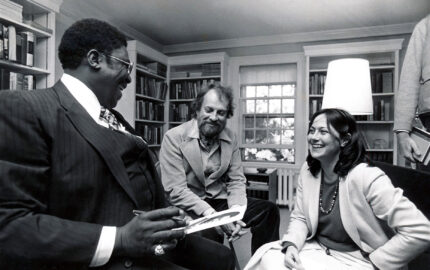William Worthy, NF ’57, a foreign correspondent who fought with the U.S. government over reporting trips to China, Cuba and Iran, died at a nursing home in Massachusetts on May 4. He was 92. It was during his Nieman Fellowship in 1956-1957 that Worthy, a reporter for the Baltimore Afro-American and correspondent for CBS News, defied the State Department’s travel restrictions by flying to China during winter break to report for CBS. He and two other American reporters on the trip became the first to enter China since 1949. In this excerpt from the Summer 1957 issue of Nieman Reports, Worthy discusses some of the story ideas he found there.
The question often asked me is how much news could be gathered by permanent U. S. correspondents in China. Most news, as of now, would have to be feature and background material. Much of it would be speculative and based on the “feel” of things which, in the present total absence of any Chinese censorship, could readily be communicated. During my six-week stay hardly a day passed without some little story or insight or inkling of a story coming my way. Hurrying one Sunday morning to tape record a church service, my interpreter and I listened to five or 10 minutes of song and prayer before an usher informed us that we had stumbled into the wrong building. This was a decrepit Salvation Army structure with just a handful of worshippers rather than the well-attended carefully maintained church around the corner to which visitors are steered …
Inside the Shanghai Drug Store I could not help but notice the continuous crowds around the counter which features the birth-control literature and unblushingly sells to men and women the unpackaged, unwrapped contraceptive devices. The literature was also for sale, but the display copies were chained to the counter in the way of our post office pens.
Across the street from the drugstore at Wing On Department Store I sensed the undiminished admiration for American products when I was shown consumer goods, from “Singers” to “Florsheims” to “Parker 51s,” which retain their private capitalistic names although manufactured now in state-owned factories of the People’s Republic of China …
A visiting correspondent under the whiplash of a limited visa has no choice but to soak in and later try to check a mass of secondhand reports during interviews and dinner parties at the various embassies. A permanent correspondent could do his own strolling and follow leads that come his way from diplomats and others. Needless to add, any reporter in China who planned to rely on leaks of secret information would be singularly unproductive of copy.
The question often asked me is how much news could be gathered by permanent U. S. correspondents in China. Most news, as of now, would have to be feature and background material. Much of it would be speculative and based on the “feel” of things which, in the present total absence of any Chinese censorship, could readily be communicated. During my six-week stay hardly a day passed without some little story or insight or inkling of a story coming my way. Hurrying one Sunday morning to tape record a church service, my interpreter and I listened to five or 10 minutes of song and prayer before an usher informed us that we had stumbled into the wrong building. This was a decrepit Salvation Army structure with just a handful of worshippers rather than the well-attended carefully maintained church around the corner to which visitors are steered …
Inside the Shanghai Drug Store I could not help but notice the continuous crowds around the counter which features the birth-control literature and unblushingly sells to men and women the unpackaged, unwrapped contraceptive devices. The literature was also for sale, but the display copies were chained to the counter in the way of our post office pens.
Across the street from the drugstore at Wing On Department Store I sensed the undiminished admiration for American products when I was shown consumer goods, from “Singers” to “Florsheims” to “Parker 51s,” which retain their private capitalistic names although manufactured now in state-owned factories of the People’s Republic of China …
A visiting correspondent under the whiplash of a limited visa has no choice but to soak in and later try to check a mass of secondhand reports during interviews and dinner parties at the various embassies. A permanent correspondent could do his own strolling and follow leads that come his way from diplomats and others. Needless to add, any reporter in China who planned to rely on leaks of secret information would be singularly unproductive of copy.
